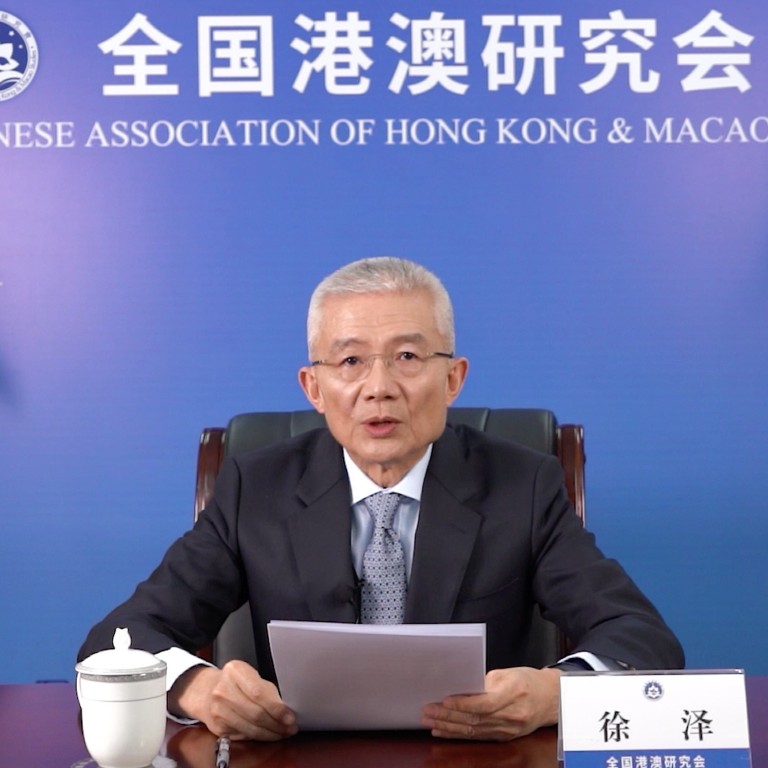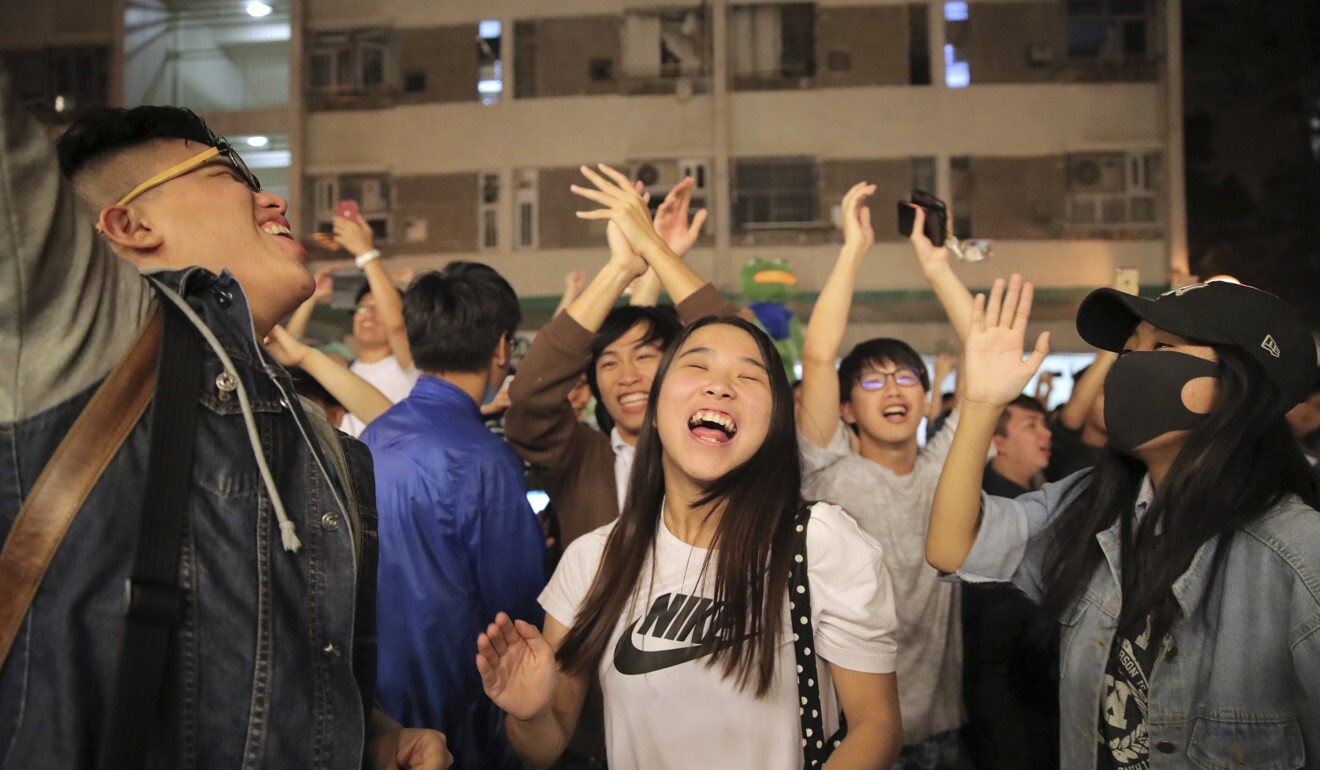
SCMP China Conference: Beijing think tank president makes pitch for Asean countries to go big into Greater Bay Area and work with Hong Kong
- Xu Ze, former deputy director of the Hong Kong and Macau Affairs Office, declares next five-year plan will have prominent role for ambitious project
- The think tank president also defends new push for a Hong Kong governed by ‘patriots’, calling it necessary for city’s long-term stability
Now president of the Chinese Association of Hong Kong and Macau Studies, Xu said his Beijing-based think tank had made the bay area plan a key focus of their studies and would be delighted to offer help to those interested in the project.

“I hope our Southeast Asian friends can visit the Greater Bay Area more often, and I believe that you will be inspired by a world-class dynamic bay area with unlimited development potential and room for imagination,” he said in a pre-recorded speech.
“I hope everyone will pay more attention to the Greater Bay Area, support it, and actively participate in the construction and development of it.”
The plan aims to transform Hong Kong, Macau and nine Guangdong cities into a global financial and technological powerhouse by 2035.
Xu noted China’s long relationship with the countries of Asean, and said the central government’s next five-year plan, to be endorsed by the national legislature next month, would give new guidance and impetus to the Greater Bay Area’s development, making sure it played a prominent role in connecting domestic consumption and international trade.
“It will become a significant platform of cooperation between China and Asean,” he said.
Greater Bay Area could provide new growth engine for Hong Kong accountants: industry body
Xu also addressed current HKMAO chief Xia Baolong’s declaration on Monday that Hong Kong’s administrative and electoral systems needed fundamental revisions to ensure only “patriots” held key positions in the city’s government and statutory bodies.
Xia said Beijing had to play a dominant role in revamping the city’s electoral system, prompting critics to question if the central government’s efforts would backfire and undermine Hong Kong’s international reputation under the “one country, two systems” framework.
But Xu on Thursday said late paramount leader Deng Xiaoping had mentioned as early as 1984 that Hong Kong’s postcolonial governance had to be dominated by patriots.
“[Xia] said we’re just harping on the same string, but this time we play it in a louder way … Xia also pointed out that our constitution prescribes that China is a unitary country, [and that] the power to create and implement the system in [Hong Kong] rests with the central authorities, and the electoral system is an important part of it. I believe all of this is not difficult to understand,” Xu said.
“Only by faithfully implementing the principle of ‘patriots governing Hong Kong’ … can the long-term stability of Hong Kong be practically guaranteed.”

In November 2019, the opposition camp won a landslide victory in the district council elections after months of violent social unrest sparked by the now-withdrawn extradition bill.
Referring to those polls, Xu said it was shocking that pro-independence activists and anti-government protesters could enter the city’s governance structure through the election.
“This shows that there is still room for improvement in the implementation of the principle of one country, two systems in the electoral system,” Xu said.
“Imagine if Hong Kong keeps going further down the road of politicisation, with the rule of law severely undermined, and its socio-economic [systems] not functioning … how can it maintain its status as an international financial, trade, and shipping centre? Can Hong Kong have a bright future?” he asked.
Xu said Beijing’s efforts to improve Hong Kong’s electoral system would ensure that one country, two systems could be implemented in a sound and steady way.
“[It is] for enabling Hong Kong to maintain long-term prosperity and stability in integrating into China’s overall development, and so its irreplaceable role can be maintained and strengthened. I have full confidence in it,” he said.
Xu also noted that Hong Kong had close economic, trade and civic ties with the countries of Asean, and had played a unique role in their relationship with China.

